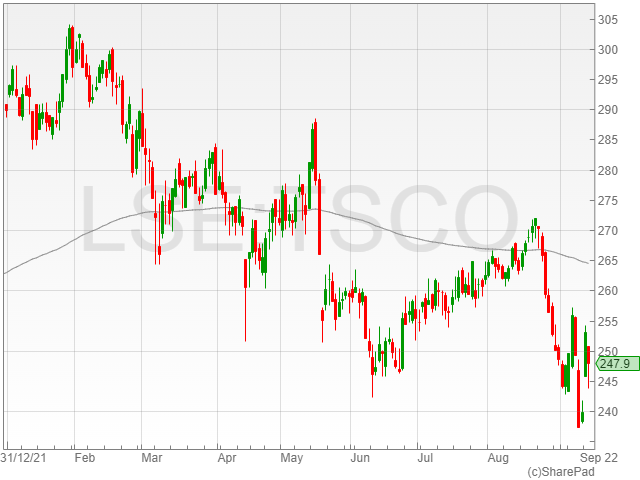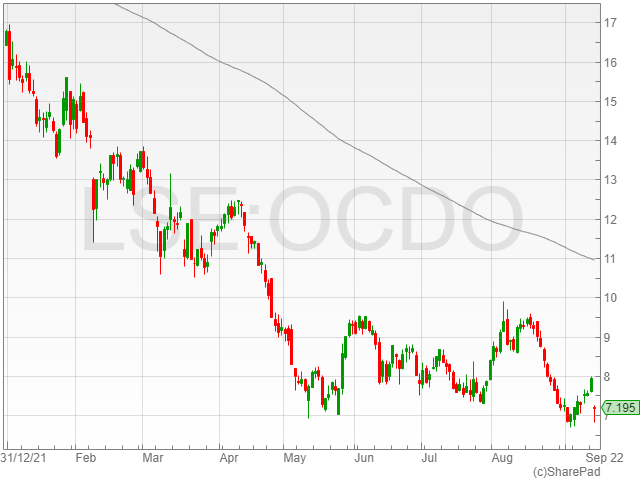All eyes were across the Atlantic ahead of the US inflation figures for August, with US futures rising as analysts anticipated positive news from the report.
“Rising prices will be in focus this lunchtime as the US posts its CPI reading for August,” said AJ Bell investment director Russ Mould.
“July’s figures were a key factor in driving a mid-August rally in stocks, before Federal Reserve chairman Jerome Powell poured cold water on hopes of a ‘dovish pivot’ on interest rates, so this latest update is likely to garner plenty of market attention.”
“Forecasts are for this measure of inflation to have dipped month-on-month and if instead prices have ticked higher once again it could knock markets off course.”
The Dow Jones was 0.4% higher at 32,641 in pre-open trading, with the S&P 500 rising 0.4% to 4,149 and the NASDAQ climbing 0.4% to 12,877.7.
Meanwhile, the FTSE 100 increased 0.3% to 7,497 in lunchtime trading, as the index failed to maintain its momentum from Monday’s strong gains.
Supermarkets
Supermarkets were in focus today, with the latest data from Kantar reporting bad news for Morrisons, which fell from its Big 4 grocer status to be replaced by budget retailer Aldi.
The cost of living crisis has seen customers turn to lower cost alternatives in higher numbers, with soaring food inflation driving consumers towards the cheaper German supermarkets in droves.
“The appeal of the German discounters continues to grow as household budgets are increasingly squeezed. This presents a challenge to Tesco and Sainsbury’s too,” said Mould.
“The fact that Aldi and Lidl offer not only bargain prices but also decent quality products and produce makes the established players jobs much harder.”
Tesco shares dipped 2.2% to 247.4p and Sainsbury’s shares slid 1.4% to 210.3p.

Ocado
However, the main disappointment in the supermarket sector came from Ocado, which reported concerning results in its pre-close trading update for FY 2022.
The online retailer announced lower sales despite a growth in customer numbers, with an expected minor sales decline over the financial term and close to break-even EBITDA.
The negative report sent the Ocado’s shares tumbling 9.7% to 717.8.
Ocado reported the average customer basket had fallen to 6% to £116 as shoppers purchased value for money products in response to inflationary pressures.
Meanwhile, the company noted cost headwinds including £15-£20 million in additional dry ice costs and a 15% rise in fuel expenses, along with tripled energy costs projected to triple on an annual basis.
“We remain focussed on providing Ocado Retail customers with the best possible value to help them navigate the cost of living crisis, and are encouraged by the positive underlying trends in the business which underline the value of Ocado’s differentiated proposition to customers,” said Ocado Retail chairman Tim Steiner.
“As consumer spending stabilises, we expect Ocado Retail will again deliver attractive and accelerating growth in sales and a strong recovery in profitability.”
“For … these reasons, we are optimistic for the future even while recognising the challenges that higher energy bills and other inflationary pressures are creating for our customers today.”

